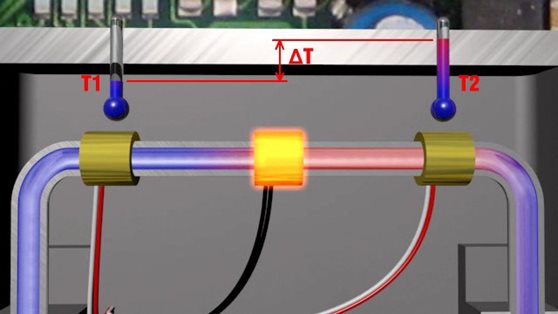Why use filters for your mass flow meters?
This simple add-on to a new flow meter can protect against a multitude of issues like:
- Debris from contaminated gas lines
- Particles that exist in industrial gases
- Small amount of oil from compressors
Filters are especially useful in applications where you must deal with dirty gases, gases with particles. This can be the case in an industrial environment, but also in research applications. You may think that in research applications you work with clean gases, but tiny particles can also occur here. Not only the particles in gases can be a problem, the dirt stored in the piping can be harmful as well.
By using filters, you can filter the gas before entering the flow meter to make sure that the gas at the inlet of the instrument is clean. This way you can avoid contamination which can lead to several avoidable costs. With avoidable costs I mean costs due to down-time, service costs, calibration costs and engineering time to remove and re-install the damaged instrument.
Inherent to its construction, a thermal mass flow meter or controller for gases is sensitive to contamination. The thermal flow meters for gas can be divided into two sensor principles:
- Gas flow meters using the bypass principle
- Gas flow meters using the CTA principle (Constant Temperature Anemometry)
Thermal Mass Flow Meters for Gases – Bypass Principle
If we look at the flow meters using the bypass principle, these instruments are more sensitive to contamination. In these instruments only part of the gas streams flows through the sensor (bypass), the rest will flow through the laminar flow element. This flow element – flow splitter- contains small discs with high-precision’s flow channels. You can imagine that these channels may be clogged by contamination

Thermal Mass Flow Meters for Gases
Instead of the bypass principle, instruments can also be designed by the CTA principle, also called Constant Temperature Anemometry, inline principle or direct-through principle. This principle has no bypass sensor but has a straight flow channel.

More information about the CTA principle.
Contamination of Mass Flow Meters
To increase the MTBF (Mean Time Between Failure) it is important to make sure that the gas or liquid entering the instrument is dry and clean, in particular when using flow instruments with a bypass sensor. Depending on your fluid you can select different types of filters.
Our mass flow meters and controllers are designed for low flows and therefore have delicate and finely machined parts. This is needed to enable us to quantify the flow rates of gases that we can achieve with a good level of accuracy and repeatability.
When you consider the potential damage that is possible from the different sources of contamination, and the delicate nature of the internal working of a mass flow controller, it would appear to be a very straightforward decision to include a filter in your next purchase of a mass flow controller.
Filters for gas flow meters and controllers
For gas flow meters and controllers, we have filters available which are placed in line with instrument (our so called IN-LINE models). Filters are easy to use, you just screw them into the inlet of the flow instrument, and it guarantees a clean gas inlet. It contains a 316L sintered metal filter cartridge that is suitable for general purpose filtration and can be cleaned with either a suitable solvent or by replacing the cartridge if heavily soiled.

If the gas contains large particles, we advise the use of a pre-filter is recommended because it will remove a high percentage of the heavy particles, as it has a cartridge with a larger porosity than the actual filter, before they reach the main filter and reduce pressure drop from clogging and excessive maintenance/cleaning requirements.
Discover Bronkhorst model and select your filter accordingly!





